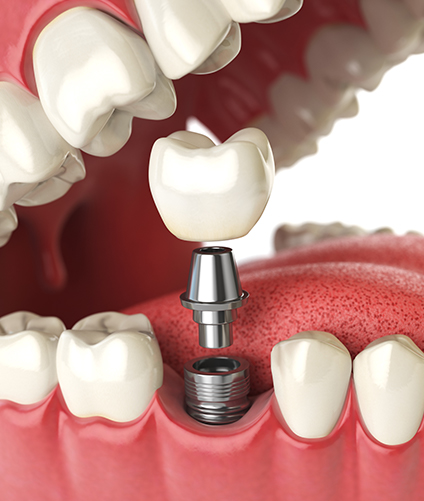What to Do if You Experience Pain or Discomfort with Your Dental Implant NYC
Dental implant NYC are one of the best ways to replace lost teeth, but any medical surgery may have drawbacks. In order to preserve your dental implant's longevity and success, it's critical to take immediate action to address any pain or discomfort you may be feeling. This is a thorough explanation of what to do in such a scenario.
Consult With a Dentist
Contacting the Manhattan dentist who placed your implant is the first and most crucial step. They are qualified to identify and resolve any problems related to your implant. As soon as you feel any pain or discomfort, get in touch with them. During your appointment, provide detailed information about your symptoms, including when the pain started, its intensity, and any specific triggers.
Observe your Symptoms
Keep a record of your symptoms so that your dentist can determine the possible cause of the issue. Remember your symptoms or note them down:
Is the pain periodical or consistent when it happens?
The level of discomfort: Is it moderate, severe, or mild?
Any other signs or symptoms like discharge, redness, or swelling.
This information may help diagnose the problem.

Maintain Proper Dental Hygiene
Maintaining good oral hygiene is essential to avoiding dental implant problems. Make sure you are:
Brushing: Clean the area around the implant with a toothbrush and gentle tooth bristles. Brush your teeth twice a day.
Flossing: To get rid of any food particles and plaque, gently floss the area surrounding the implant.
Using Antimicrobial Mouthwash: To help reduce bacteria, rinse your mouth with an antimicrobial mouthwash.
Poor dental hygiene can result in inflammation or infection, both of which can be painful.
Stop Eating Sticky or Hard Foods
If you are experiencing discomfort, it is better to avoid foods that are causing pain or discomfort while eating. Avoid food such as:
Hard foods: Nuts, popcorn, and hard sweets are examples of foods that can further strain an implant.
Sticky Foods: Items that stick to the implant and may irritate it, such as caramel and chewing gum. Choose soft foods that won't hurt your implant if you're in discomfort.
Use a Cold Compress
Applying a cold compress to the affected area can help reduce discomfort if there is localized pain or swelling. To prevent frostbite, use the cold compress for 15 to 20 minutes at a time while covering your skin with a cloth or towel.
Take Over-the-Counter Pain Relievers
If you are experiencing pain, you can take over-the-counter pain relievers such as ibuprofen or acetaminophen. These can help manage the pain and discomfort. Follow the dosage instructions on the label, or consult with your 24 hour dentist near me.

Check for Signs of Infection
Sometimes, pain or discomfort can be a sign of an infection. So, observe your signs such as:
Swelling: Around the dental implant or in your gums.
Redness: In the gum tissue.
Discharge: Pus or other discharge from the dental implant site.
If you notice any of these signs, it is better to visit your emergency dental office immediately.
Consider Implant-Related Issues
Many times, pain and discomfort can be caused due to the implant-related issues, such as:
Implant Failure: Pain can be caused by the failure of the implant to integrate with the bone.
Consider talking to your dentist if you have pain or discomfort in your implant near the implant or around the gums. Book an appointment with your dentist today.
Summing Up:
Experiencing pain or discomfort with a dental implant is a significant concern that can cause many problems when not treated properly. However, if you take immediate action, you can have a successful and affordable dental implant placement. Book an appointment with your dentist if you have issues related to implants. By maintaining good oral hygiene, avoiding certain foods, and monitoring your symptoms, you can address potential problems early and ensure the long-term success of your dental implant.
Comments
Post a Comment